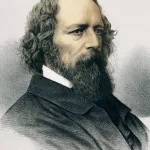Love, you ask too many questions.
Let’s agree: we are whole
—John Thompson, “Ghazal II”
I take apart the watch
you left here
a thousand times each day.
It does not help me
understand time.
I press our mirrors together
as if I could pin the infinite
but the glass
will not be rasped
back to sand.
I try to sift
the love from grief
the grief from love
and only succeed
in splitting my own atom.
Still, my body refuses to part with me
insists that we are an ever-changing entirety
declines to debate me on this fact
as I twist and spit
mind scalpelling
itself to bits
a vivisectionist bent
over a strapped animal
muttering
find peace
find peace
as she works.
And indivisible
under her knife
the reply:
there is no love
without the first love
one’s own
lost love
may you rejoin yourselves
may you survive
even when you don’t want to.
Misch expounds the unbearable work needed after a breakup: to separate from your lost love and “rejoin yourselves…even when you don’t want to.”
- How do we know the poet is writing about love?
- What images does the poet use to express grief?
- What are your reactions to the verse below:
as I twist and spit
mind scalpelling
itself to bits
a vivisectionist bent
over a strapped animal
muttering
find peace
find peace
as she works.
- How does the poem express the ambivalent feelings that accompany a seperation?
- How can you use volume, intonation and tempo to ensure the listener understands the poem holds italicized verses:
there is no love
without the first love
one’s own
lost love
may you rejoin yourselves
may you survive
even when you don’t want to.
Writing Activity
The poet uses the epigraph by Thompson as inspiration:
Love, you ask too many questions.
Let’s agree: we are whole
Using a verse from the poem “The Problem With Being a Box Too Small for Its Contents” as an epigraph, write your own love poem.
Useful Links
- Lucia Misch “How its Made”: https://www.youtube.com/watch?v=bRaLkdDusIM
- Ghazal: https://www.poetryfoundation.org/learn/glossary-terms/ghazal





